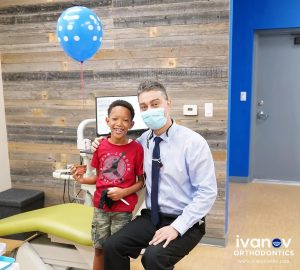Rebuilding Lives with Skilled Trauma Therapists in Frederick, MD
4 min read
Trauma Therapist Frederick MD
Trauma can leave permanent scars, both apparent and unseen, that influence all aspects of a person’s life. Trauma has a tremendous influence on people, often causing feelings of powerlessness, anxiety, sadness, and a variety of physical symptoms. In Frederick, MD, trained trauma therapists like Dr.Sal Schittino are making a huge impact in the lives of those who have been traumatized by guiding them to healing and recovery. This article looks into the critical function of trauma therapists Frederick, MD, the therapeutic methodologies they use, and the transformative journeys they facilitate for their clients.
Understanding Trauma and Its Effects
Trauma is a complex emotional reaction to traumatic experiences that exceed an individual’s capacity to cope. These incidents may include physical or sexual abuse, accidents, natural disasters, military combat, or witnessing violence. Trauma can also be caused by long-term exposure to painful events, such as childhood maltreatment or domestic abuse. Trauma has far-reaching consequences that can present themselves in a variety of ways, including:
Mental Signs and Symptoms: mood swings, fear, rage, despair, and anxiety.
Physical Symptoms: Fatigue, insomnia, chronic pain, and gastrointestinal issues.
Symptoms of Cognitive Function: memory issues, attention issues, and intrusive thoughts.
Behavioral Signs and Symptoms: addiction to substances, self-destructive habits, and avoidance of specific situations or individuals.
Understanding the pervasive nature of trauma underscores the importance of professional intervention. Skilled trauma therapists in Frederick, MD, are trained to address these complex and multifaceted symptoms, providing a safe and supportive environment for individuals to begin their healing journey.
The Function of Trauma Therapists
Trauma therapists are mental health practitioners who specialize in diagnosing and treating trauma-related conditions. Their job goes beyond typical therapy, embracing a variety of techniques and interventions aimed to assist individuals in processing their experiences, developing coping mechanisms, and rebuilding their lives. Trauma therapists have the following key responsibilities:
Assessment and Diagnosis:
Trauma therapists conduct thorough assessments to understand the nature and extent of the trauma. This involves exploring the individual’s history, symptoms, and current functioning to develop an accurate diagnosis and tailored treatment plan.
Creating a Safe Therapeutic Environment:
Establishing a sense of safety and trust is paramount in trauma therapy. Therapists create a non-judgmental and empathetic space where clients feel secure enough to explore their traumatic experiences.
Individualized Treatment Plans:
Recognizing that each individual’s experience of trauma is unique, therapists develop personalized treatment plans that address specific needs and goals. These plans often incorporate a combination of therapeutic approaches.
Therapeutic Interventions:
Trauma therapists employ various evidence-based interventions to help clients process their trauma. These may include cognitive-behavioral therapy (CBT), eye movement desensitization and reprocessing (EMDR), somatic experiencing, and mindfulness-based techniques.
Support and Advocacy:
Beyond therapy sessions, trauma therapists often serve as advocates for their clients, helping them access additional resources and support systems, such as support groups, legal assistance, and medical care.
Therapeutic Approaches in Trauma Therapy
Effective trauma therapy often involves a combination of therapeutic approaches tailored to the individual’s needs. Some of the most commonly used approaches by trauma therapists in Frederick, MD, include:
Cognitive-Behavioral Therapy (CBT):
CBT is a popular method for helping people recognize and change problematic thought patterns and behaviors connected with trauma. Clients can enhance their general well-being by challenging their thoughts and establishing healthier coping strategies.
Eye Movement Desensitization and Reprocessing (EMDR):
EMDR is a specialist therapy that uses bilateral stimulation to help people process traumatic memories. This therapy helps to restructure the brain’s response to trauma, lowering the intensity of painful memories and related distress.
Mindfulness-Based Therapies:
Mindfulness practices, such as meditation and deep breathing exercises, help individuals stay grounded in the present moment. These techniques can reduce anxiety, enhance self-awareness, and promote a sense of calm and stability.
The Transformative Journey of Healing
The journey of healing from trauma is often a long and challenging process, but with the guidance of skilled trauma therapists in Frederick, MD, individuals can achieve profound transformation. Here are some of the key stages and outcomes of this healing journey:
Establishing Safety:
The initial phase of trauma therapy focuses on establishing a sense of safety and stability. This involves building a trusting therapeutic relationship, developing grounding techniques, and addressing any immediate crises.
Processing Trauma:
Once a sense of safety is established, clients begin the process of exploring and processing their traumatic experiences. This phase can be intense and emotionally challenging, but it is essential for integrating and making sense of the trauma.
Rebuilding Relationships:
Trauma often affects relationships with family, friends, and colleagues. Therapy helps individuals rebuild and strengthen these connections, fostering a sense of support and belonging.
Achieving Empowerment:
The ultimate goal of trauma therapy is to empower individuals to reclaim their lives and move forward with confidence and resilience. This involves fostering a sense of self-efficacy, building on strengths, and setting future goals.
Conclusion
Rebuilding lives after trauma is a complicated and very personal path that necessitates the knowledge and compassion of trained trauma therapists in Frederick MD. These specialists in Frederick, MD are dedicated to supporting patients through the healing process, providing a safe and supportive environment in which to examine and overcome traumatic situations. Trauma therapists assist clients in developing the tools and resilience necessary to reconstruct their lives and achieve long-term well-being through individualized therapy plans and evidence-based interventions. Trauma treatment has a transforming influence beyond symptom relief, creating empowerment, connection, and hope for a better future.



